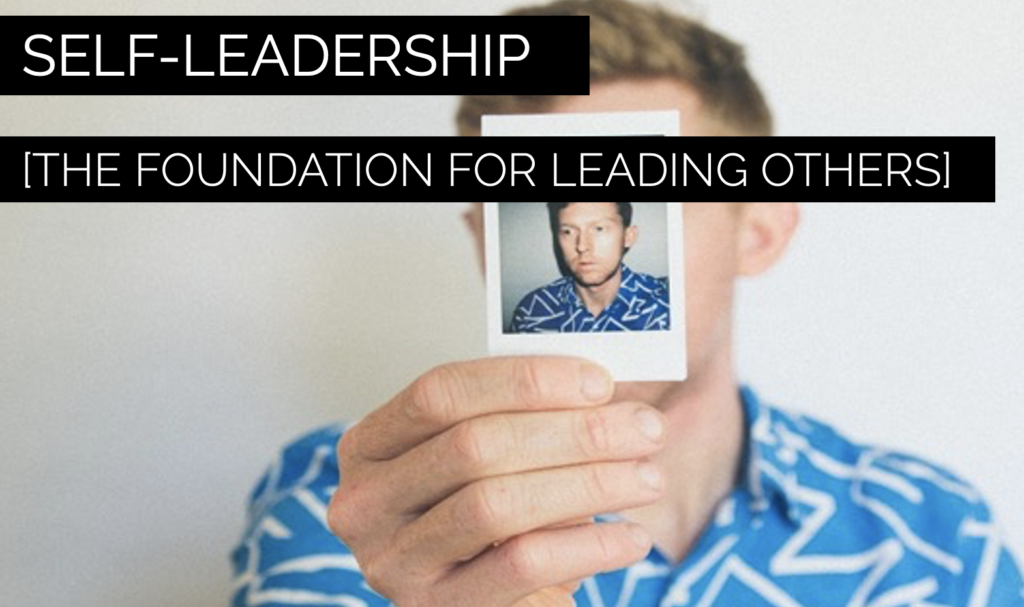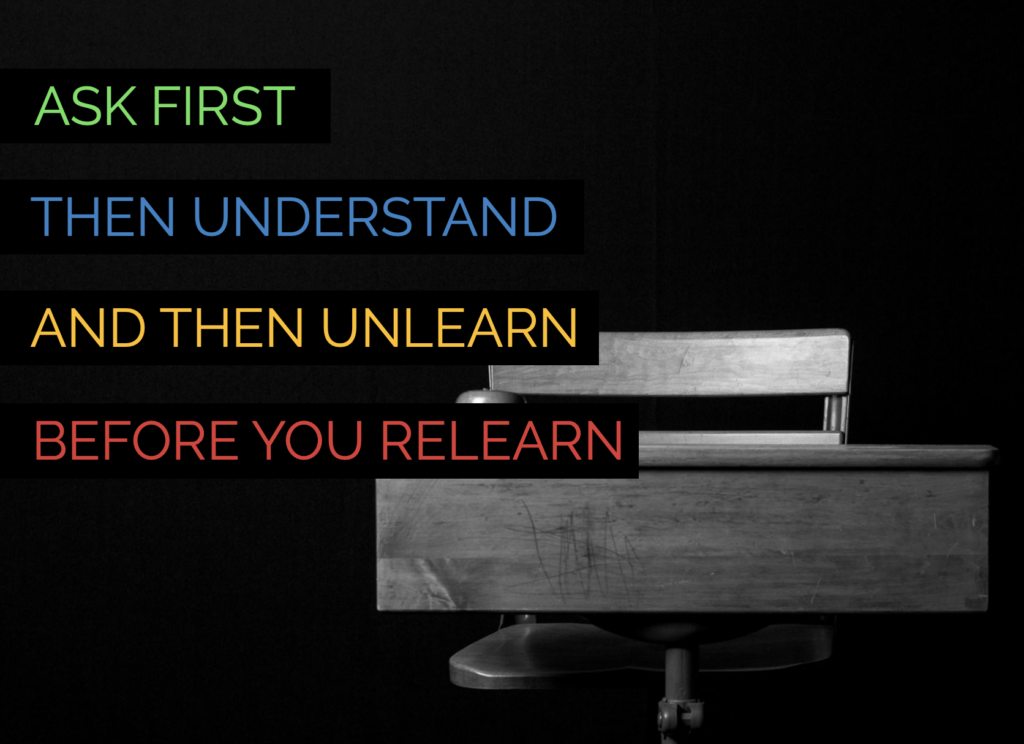the art of developing the mental positions towards change
What is self leadership?
The concept of self leadership is almost as old as mankind. You can find it in the writings of sages and poets, in both Eastern and Western philosophy. Aristotle claimed in his Nicomachean Ethics that eudaimonia (the art of leading a well spent life) is the highest good for human beings.
In more recent times, Peter Drucker introspectively described self-leadership as “serving as a captain of one’s own life.” In contrast, Dale Carnegie saw it more as an outward facing strategy for success by winning over friends and influencing people.
Others claim that all it needs to lead oneself is a goal and taking full responsibility for that goal. And classic management schools treat it merely as means to an end. They describe it merely as a critical factor for organizational success.
The goal seems to push leaders to become more efficient and effective (probably to squeeze the most out of the Scientific Method).
As with so many buzzwords, it is difficult to find a simple definition. So, it’s worth asking whether these approaches are still up to date? Whether they need to be rethought to withstand the demands of a constantly changing world?
WHAT IS SELF LEADERSHIP IN THE 21ST CENTURY?
Self leadership is the ability to follow a growth path towards personal mastery and excellence. Whatever this may be? In a more general sense, self-leadership is about intentionally working on your way of thinking.
This includes how to reflect your feelings and taking the according actions towards your objectives. It is also about empowering and positively influencing yourself in times of struggle. This is only possible with a combination of perseverance and passion.
Without effort, your skill is nothing more than what you could have done but didn’t.”
Angela Duckworth
Moreover, self-leadership is also about gaining the resilience and flexibility to adapt along the way. Life is a repeating heroine’s journey. Each hero will eventually struggle, hesitate, resist, and fail along the way. In order to later learn, grow and become even better after all.
This means, self-leadership is not so much about boosting personal efficiency. Neither merely about self-confidence and new self-affirmative convictions. Even though many self-help books and business schools still try to sell it as such.
It is neither just a tool to drive material success nor to gain a competitive advantage. And it is definitely not the secret sauce to successfully accomplish more in less time.
In a deeper sense, it is about becoming the best possible self. It is not a skill that is acquired once. It rather represents a constant process of learning, unlearning, and relearning. Another way of putting it: you cannot not lead yourself.
The difference is if you are aware of it or not. So, self-leadership is the conscious practice of understanding who you are. It is the difference between fate and choice. How well we understand if we lead a life with purpose or not.
Self-leadership should always be directed towards
what you do,
why you do it,
when you do it,
and how we do it.
The question is not if you want to lead a meaningful life or not (everybody wants that), but HOW to get there. It is about identifying what you really, really want to experience in life. And then gaining the ability to coach yourself toward this horizon.
With conviction. With intention and with the help of a community.
Use your life to serve the world, and you will find that it also serves you.”
Oprah Winfrey
WHY IS SELF-LEADERSHIP BECOMING MORE AND MORE IMPORTANT?
At the beginning of the millennium, it was very quiet around self-leadership. However, self-leadership celebrates a renaissance.
Today, the notion of self-leadership is also known as personal mastery. Many see it as the answer to how we develop ourselves to thrive in a VUCA world.
This is a Volatile, Uncertain, Complex, and Ambiguous world we live in.
It is true that we live and work in a highly competitive world that changes from one minute to the next. That’s why, at first glance, it makes sense to face these challenges by differentiating yourself from others.
That is why many coaches tell you to present yourself as a unique and distinctive personal brand. They work with individuals to stand out in a competitive marketplace.

However, it makes sense to take another look at this advice. Is higher, faster, further really what helps us in the long run? Or doesn’t modern self-leadership also mean to pause every once in a while? Thinking thoroughly about what really, truly takes us further?
If everything outside is getting faster and more hectic, it makes more sense to do exactly the opposite inside. Shouting along, competing along and running the risk of burning out at some point is not what we should strive for.
Instead, it makes more sense to regularly reflect in peace and quiet. We must consciously make new experiences, in order to adjust the goals when the conditions change. That way we’re much more likely to find what really makes us happy.
Making new experiences is key
Modern self-leadership also means that we must develop and effectively communicate a unique vision. We shouldn’t focus our personal horizons only on career goals. We must learn to regard this endeavor as a holistic process that includes all aspects of our lives.
This process involves transforming our thinking from a fixed into a growth oriented mindset. Or better a state of mind – as something that is not set but adaptable and flexible.

This flexible state of mind is best developed by questioning one’s own attitude towards change. This is a fundamental 21st century skill.
A state-of-the art approach to self-leadership can be found in a framework that consists of five attitudes used in the English acronym SHIFT:
WHAT COMPETENCIES DO I NEED TO WORK ON?
Leading yourself will take you on a developmental trek. It can be seen as an experiential learning process. Infused with challenges to experiment with new attitudes. Discovering skills for lifelong learning. And enough space and time for reflection and awareness about yourself.
The one thing you can’t take away from me is the way I choose to respond to what you do to me. The last of one’s freedoms is to choose one’s attitude in any given circumstance.”
Viktor E. Frankl
To lead yourself, the following competences should be developed over time:
Clarify the intentions in your life.
It is not so much about goal setting but finding the right direction. Regard purpose as a process that allows you to find a sense of direction. Something to strive for. Something that gives you meaning and the strength to continue when things get though.
Defining the direction will also allow you to formulate defined short term goals and create a strategy to best achieve those goals.
Identify your distinctive strengths.
Don’t settle on the most obvious one but experiment with your talent. Step outside your comfort zone. Once you have found your strengths, put them to work.
It is not becoming good at what you do but about knowing where your greatest strengths are and continuously developing those strengths without feeling entitled to anything
Discover your shadows.
We love to talk about our sunny sides. But, there are aspects of you that you are not (yet) aware of. Becoming aware of the blindspots takes courage. And so does asking for feedback from others, especially those people you trust and respect.
However, this will increase your self-awareness to become an authentic leader. Show the world that you are a whole human being. With specific traits, values, and feelings!
Develop personal ownership.
Character is the unique combination of traits and behavior that distinguishes individuals. Being aware of what makes up our personality is crucial to success. However, we can only grow if we take ownership for what we learn and how we make progress.
True ownership consists of two components:
- taking personal responsibility
- and holding those around us accountable for their actions, too.
Such an approach enhances your credibility and your success as a (self)leader.
HOW CAN I GROW THROUGH SELF LEADERSHIP?
Authentic growth is a highly subjective matter. To develop the mental positions towards change, every leader should go through these five phases. This process is not a one-way street. It is an iterative process that repeats itself over and over again. Ideally throughout a lifetime.
DARE
How can I take responsibility and hold myself accountable to pursue my goals?
IMAGINE
How can I detect trends, imagine possible future scenarios, and find meaning?
DISCOVER
How can I foster curiosity and design descriptive experiments to drive rapid learning?
ADAPT
How do I constantly question existing beliefs, overcome cognitive biases and adapt my opinion?
DO
How do I gain a conscious awareness and credibility by expressing vulnerability and gratitude?
This is content from the SHIFTSHAPE Framework, a transformative leadership approach to meet the personal and organizational challenges of the 21st century.
The framework is the essence of real-world research and didactic experimentation. It includes the latest research in innovation and leadership, psychology, and neuroscience.
If you are interested in more information about the SHIFTSHAPE Framework click here.

